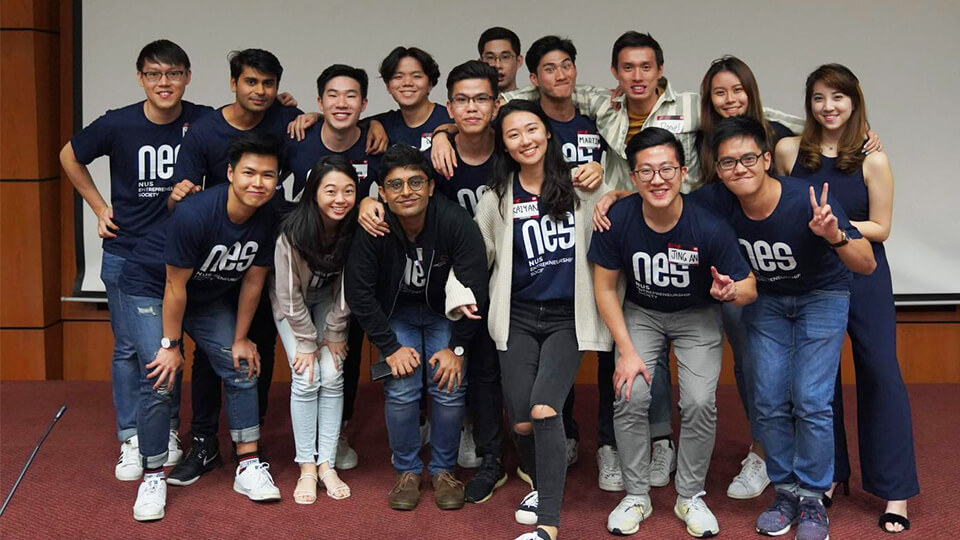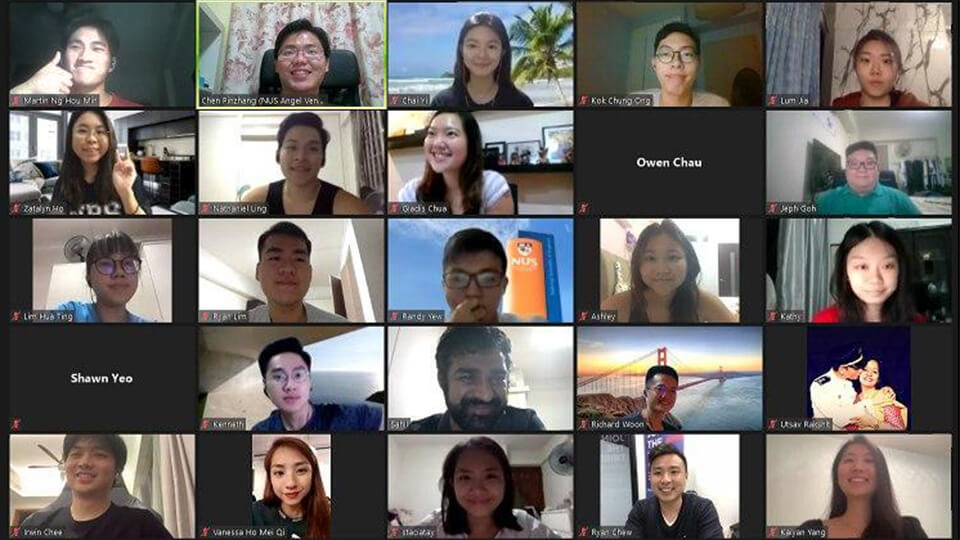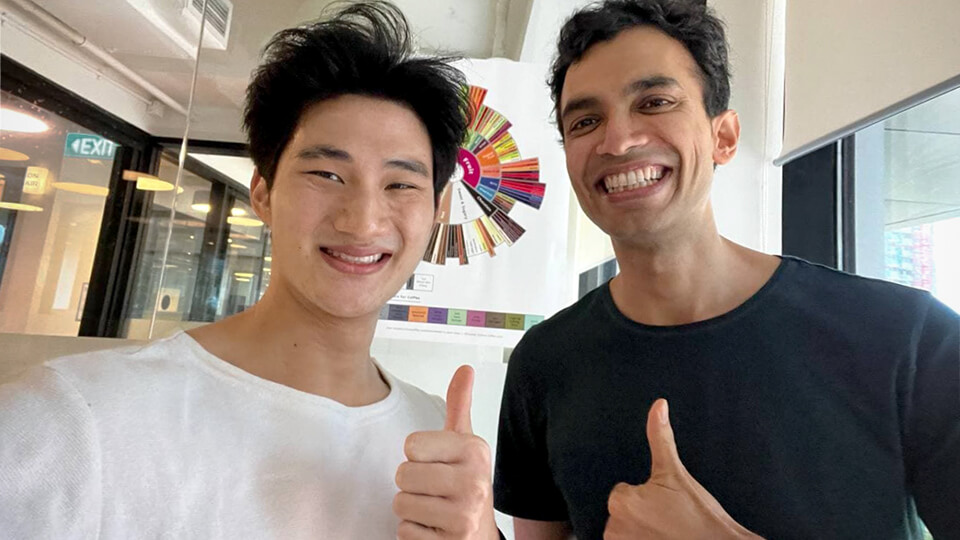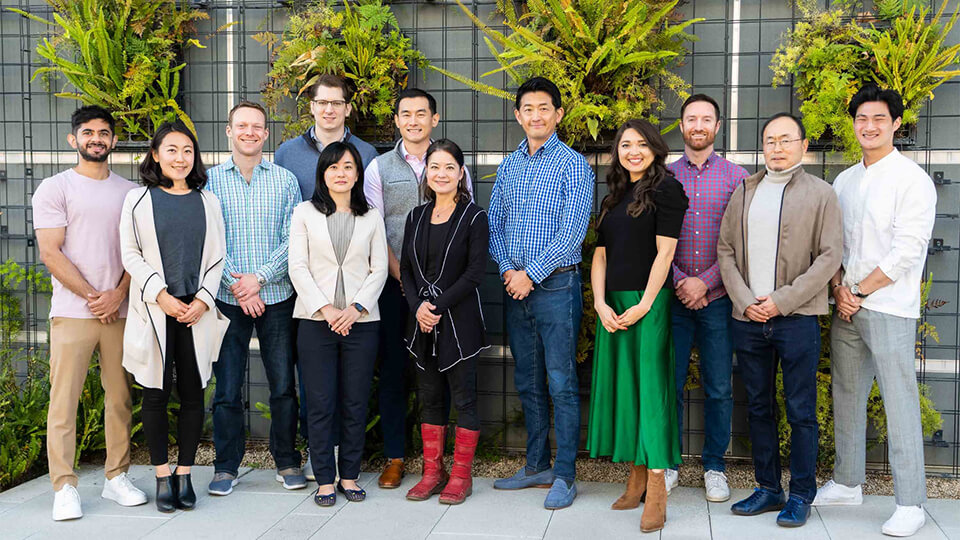With his interest in technology and entrepreneurship, Martin Ng has helped start-ups in Singapore and the United States turn their dreams into reality. The Year 4 double-degree student in Business Analytics and Mechanical Engineering at NUS Business School, recalls how his love affair with technology began.
He was in his first year of National Service when he heard the term “unicorn”— referring to start-up companies valued at over US$1 billion — for the first time. “I realised that everything I accessed on the internet came from a start-up: YouTube, Google and more,” he muses.
Embodying the spirit of growth
Eager to understand what makes companies successful, Martin knew he had to learn from one of the world’s leading business schools.
NUS Business School, rated as the best in Asia by QS World University Rankings in 2022, stood out as a top choice for him for its distinctive combination of global business knowledge, international exchanges and opportunities for collaboration with other esteemed institutions.
At NUS, Martin took on multiple data-focused courses that taught him relevant programming languages such as SQL (Structured Query Language) and Python, empowering him to expertly assess a product’s market fit.
Martin also loved the flexible learning culture at the faculty, and fondly recalls Assistant Dean (Undergraduate Academic) Associate Professor Ravi Chandran, an educator who left a distinct impression on him even though he had never directly taught Martin.
“He went out of his way to speak to you in any capacity, and was very helpful about answering questions,” Martin remembers gratefully. “He also guided me on which courses I should take.”
Martin leveraged the myriad experiential learning opportunities NUS Business School had to offer, such as access to a medley of overseas and local case competitions. Taking advantage of the chance to represent the university on the global stage, Martin demonstrated the skills he was taught in NUS at The Nordic Business and Design Case Competition and the Venture Capitalist (VC) Case Competition.
“These opportunities bolstered my skills in public speaking, quick thinking and critical on-the-ground perspective-taking, which are an impactful accompaniment to the NUS curriculum.”
At the heart of such competitions is the need to showcase design thinking and innovation in response to real-world case studies. With rapid prototyping of fresh solutions under a tight time crunch of 24 to 48 hours, these were dynamic platforms for Martin to flex his entrepreneurial muscles and push his limits.
These concrete experiences also inspired Martin to connect with people from all walks of life and team up with fellow NUS students to organise entrepreneurship initiatives with the NUS Entrepreneurship Society (NES).
 Martin (last row, fourth from right) with the NUS Entrepreneurship Society Start-up Relations Division at Spark Tank X.
Martin (last row, fourth from right) with the NUS Entrepreneurship Society Start-up Relations Division at Spark Tank X.
As the Society’s Operations Director, Martin organised SparkTank X, a mentoring session and pitching competition for aspiring student entrepreneurs. Martin also spearheaded NES’ Start in Start-up Online Series, where established guest speakers share insights and real-world experiences with the NUS community.
Through these networking sessions, Martin discovered an opportunity for him and like-minded peers to better support the NUS start-up community.
“I saw how difficult it was for student-led start-ups to get their first intake of funding. Most of them are very ‘bootstrapped’, and you can’t find actual committed mentors to help them,” Martin recalled.
When an entrepreneur bootstraps a business, they start with little capital or fund the business from their own finances, rather than external investment sources.
Together with six other friends from various faculties, Martin launched NUS Angel Ventures (NAV) — Southeast Asia’s first student-led angel investors network — at the peak of the COVID-19 pandemic.
 Martin (top left) moderating the first instalment of NAV's sector-specific industry sharing, where they delved deeper into fundraising in the Fintech and Blockchain ecosystems.
Martin (top left) moderating the first instalment of NAV's sector-specific industry sharing, where they delved deeper into fundraising in the Fintech and Blockchain ecosystems.
Their networking sessions proved to be an invaluable platform for student entrepreneurs who wanted to connect with mentors and angel investors during the lockdown.
Empowered by NUS and fuelled by his drive to bridge this gap, Martin reached out to VC firms in Singapore and took on a position as a Venture Analyst in Strive, a firm providing funding for early-stage start-ups.
 Martin (left) taking a selfie with Strive Partner Nikhil Kapur.
Martin (left) taking a selfie with Strive Partner Nikhil Kapur.
Powering up in Silicon Valley
In 2022, as the pandemic situation began to stabilise and travel restrictions eased, many NUS students made their way out of Singapore to explore the world. Likewise, Martin ventured into the California Bay Area via the NUS Overseas College in Silicon Valley (NOC SV) programme, and took this opportunity to rub shoulders with some of the industry’s biggest players.
Describing the experience as empowering students with “the base layer of understanding entrepreneurship,” Martin values his time abroad for teaching him priceless skills.
The enriching adventure also gave him insight into the Singapore entrepreneurial ecosystem. “I found it comforting when I realised that what we already have in Singapore — from the tech talent to the landscape — is comparable. Singapore is a lot more developed than I initially thought in comparison to Silicon Valley,” he reflects.
Today, Martin applies the valuable knowledge he has gained from his experiences in his work as a venture analyst at Scrum Ventures, another VC firm based in San Francisco, where he helps to fund and guide budding start-up companies.
“What I like about my role here is how they give me full autonomy,” he says.
 Martin (first from right) with colleagues at Scrum Ventures who flew in from all over the United States for Work Together Day. Some colleagues Martin works with most closely include Ray Lian, Senior Associate (sixth from left); Tak Miyata, Founder and General Partner (fifth from right); Stephanie Simon, Head of Platform (fourth from right)) and Ryan Mendoza, Partner and Head of US Investments (third from right).
Martin (first from right) with colleagues at Scrum Ventures who flew in from all over the United States for Work Together Day. Some colleagues Martin works with most closely include Ray Lian, Senior Associate (sixth from left); Tak Miyata, Founder and General Partner (fifth from right); Stephanie Simon, Head of Platform (fourth from right)) and Ryan Mendoza, Partner and Head of US Investments (third from right).
Red flag, green flag
As a venture analyst, Martin has learned to sharpen his intuition when assessing start-ups. “When we talk to founders, we only take 30 minutes — and that’s all we need to understand whether we actually want to carry on the conversation or not,” he explains.
A green flag, according to Martin, is when the founders understand product-market fit. “You wouldn’t want someone who has always cooked chicken rice to suddenly cook char kway teow,” he explains.
On the other hand, one potential red flag is when they focus too much on traction. “What your product looks like now is not truly representative of what you will have later. It’s more of what the future looks like to you and how you’re planning to iterate your product and onboard the next hundreds, thousands of users,” he emphasises.
Equipped with both knowledge and experience, Martin seeks to help entrepreneurs focus on the long game and build adaptable, innovative companies that will stand the test of time.
Setting the runway
In addition to currently working for Scrum, Martin is making the most of his last few months in the United States by solidifying his connections in the industry — particularly in the Web 3 and blockchain communities.
It does not matter where life takes Martin, for he is open to relocating "wherever it leads." He is certain of one thing, however— his desire to learn more about the tech start-up industry. He aspires to have his own VC firm one day and hopes to take another shot at launching his own start-up.
His parting advice for young entrepreneurs? “If you push yourself and have a mindset of always learning, you can do so much to bring value to people around you.”
 Start-up life: Martin brisk walking through the bay area of San Francisco, California, where he spent most of 2022 as part of the NOC Silicon Valley work and study entrepreneurship programme.
Start-up life: Martin brisk walking through the bay area of San Francisco, California, where he spent most of 2022 as part of the NOC Silicon Valley work and study entrepreneurship programme.